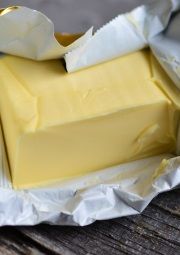Which are some of the most nutrient-dense foods?
Not all foods are created equal, some are actually more nutrient-dense than others, but which?
This Nutrient-dense food list by Medical News Today runs through some of the most nutrient-dense foods available that we could be including in our diet.
This list includes:
- Nuts, which are rich in vitamins E and K as well as magnesium and potassium
- Sweet potato, which contain vitamins A, B6 and C whilst also being a great energy source as they’re high in complex carbohydrates
- Salmon, which is high in protein and omega-3
- Legumes, where beans, peas and lentils are all a source of protein, fibre and iron, amongst other nutrients
- Kale, which contains fibre, protein and vitamins A, C and K
- Quinoa, like sweet potato, is a source of complex carbohydrates as well as magnesium, phosphorus and B vitamins
- Berries, which are a good source of polyphenols and vitamins
- Dandelion greens, like kale, contain vitamins A, C, E and K as well as minerals calcium, iron and magnesium.
Link between vitamin D and improved memory in study
We already looked at the relationship between vitamin D and magnesium in last week’s Nutrition News but this latest study ‘More vitamin D may improve memory but too much may slow reaction time’ suggests that there may be even more reasons to consider your vitamin D levels.
The study, as published by Science Daily, is from Rutgers University and suggests that while memory can improve with increased vitamin D it can also lead to slower reaction times in the study group of obese women aged between 50 and 70 years old. As the study was conducted on women aged 50 – 70 years old, who were overweight or obese, the study highlights the potential increased risk for falls amongst older people.

Will eating fat make you fat?
It can be easy to assume that the consumption of fat or fatty foods can, in turn, make you fat. However, an article from Examine.com ‘Does eating fat make you fat?' starts to unpick these assumptions and looks at studies to uncover whether it really is just fat that makes you fat.
The article starts by pointing out that carbohydrates and protein are both burned for energy and other metabolic processes but can also translate into fat gain when eaten in excess after the other processes are used up. Eating fat, however, has just two options; burned for energy, if neither carbohydrates or protein is available, or stored as body fat, so how much fat you burn is dependent on how much of the other two you consume.
See the article in full for the results of low-fat versus low-carb diets but keep in mind that these are tightly controlled studies whereas real-world data may differ.
Share your thoughts
What did you think of the findings covered in this week’s Nutrition News? Share your thoughts with us on Facebook and Twitter.
 Alison is Director and Founder of Metabolics who writes about Metabolics updates, events and natural healthcare. Her experience and passion for natural supplements and healthcare comes from her years of experience as a practising osteopath, having founded Metabolics in her search for high quality, natural products in her own work. Alison has been a qualified and practising Osteopath since 1981 and regularly gives seminars on a range of healthcare subjects to the wider practitioner community helping share her knowledge and experience.
Alison is Director and Founder of Metabolics who writes about Metabolics updates, events and natural healthcare. Her experience and passion for natural supplements and healthcare comes from her years of experience as a practising osteopath, having founded Metabolics in her search for high quality, natural products in her own work. Alison has been a qualified and practising Osteopath since 1981 and regularly gives seminars on a range of healthcare subjects to the wider practitioner community helping share her knowledge and experience.




